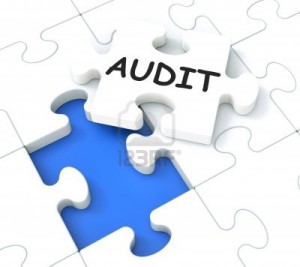Two Civil Society Organisations (CSOs) have said that for the fight against corruption to be wholesome, there has to be a substantive audit law in place.
They said this in separate interviews with the News Agency of Nigeria (NAN), in Abuja.
Mr John Mutu, Parliamentary Adviser with Partnership to Engage, Reform and Learn (PERL), said that not having an audit law would limit the effectiveness of the fight against corruption.
“Nigeria is one of the few countries in the world without an Audit Law. The pre-independence audit ordnance presently in existence is moribund and has thus rendered the Office of the Auditor-General of the Federation (OAuGF) impotent and ineffective.
“The country will continue to be regarded as not serious in its fight against corruption among the committee of nations because the enactment of an audit law is a key requirement at international auditor financial reporting bodies.’’
According to him, the Open Government Partnership (OGP) the country signed to under the present administration requires the presence of a vibrant audit process/institution as one of its key pillars.
He also said that the law was important because it was aimed at providing a robust legal framework for the audit process in the country.
“It seeks to empower or strengthen the capability and scope of audit function to carry out performance and value for money audit.
“Beyond the routine annual audit reports that the office currently presents to the National Assembly (NASS), it will also be evaluating the effectiveness of government plans, policies and programmes.
“It will also evaluate how efficiently Ministries, Departments and Agencies (MDAs) are utilising public funds.’’
Mutu said that having the proper audit law in place would enhance the functionality and capacity of the OAuGF to effectively scrutinise the generation and utilisation of public funds.
“While the Economic and Financial Crimes Commission (EFCC) and Independent Corrupt Practices and Other Related Offences Commission ( ICPC) relies on petitions and complaints from whistle blowers to perform their functions, the OAuGF is statutorily empowered to conduct periodic checks on the generation and utilisation of public funds.
“This regular checks are aimed at preventing abuses and corruption, knowing that somebody will be asking questions.’’
He said that Environmental and Revenue Audits conducted by the OAuGF would also help block leakages in revenue generation and management of the nation’s scarce mineral and extractive resources, especially in solid minerals and forestry reserves.
According to him, the office which will function independently from the influence of the executive will improve the resources available to it and enable it complement the efforts of the other anti-corruption agencies.
Meanwhile, Mr Olusegun Elemo, the Executive Director, Paradigm Leadership Support Initiative (PLSI), a CSO, said having an audit law was the “game changer’’ for public accountability in the country.
According to him, this is because it will empower the Auditor-General to sur-charge the emoluments or entitlements of any public official found wanting.
Elemo said the law could strengthen the fight against corruption, mandate accounting officers of MDAs, statutory corporations, parastatals, authorities, commissions, agencies to submit audited financial statements not later than 90 days after the previous financial year
According to him, failure to do so will attract stiff penalties including imprisonment.
NAN reports that the nation presently has no audit law for the OAuGF and the only relevant statute is the pre-independence Audit Ordnance of 1956.
However, an Audit Bill was passed by the National Assembly in early 2015 but the President did not assent to it.
The bill was subsequently presented to the eight House of Representatives and was passed by the House in late 2015 and the Senate in March 2018 and forwarded to the President for assent.
“The implication is that the incoming NASS would have to pass it again and transmit to the President for assent,’’ the CSOs said. (NAN)

